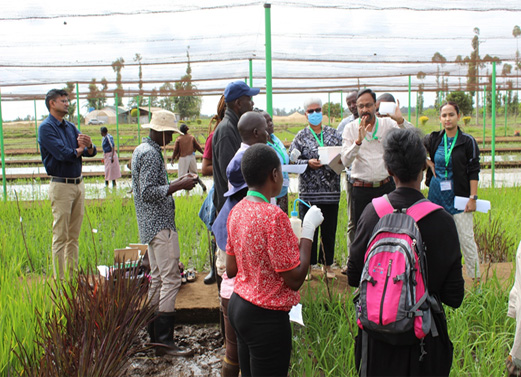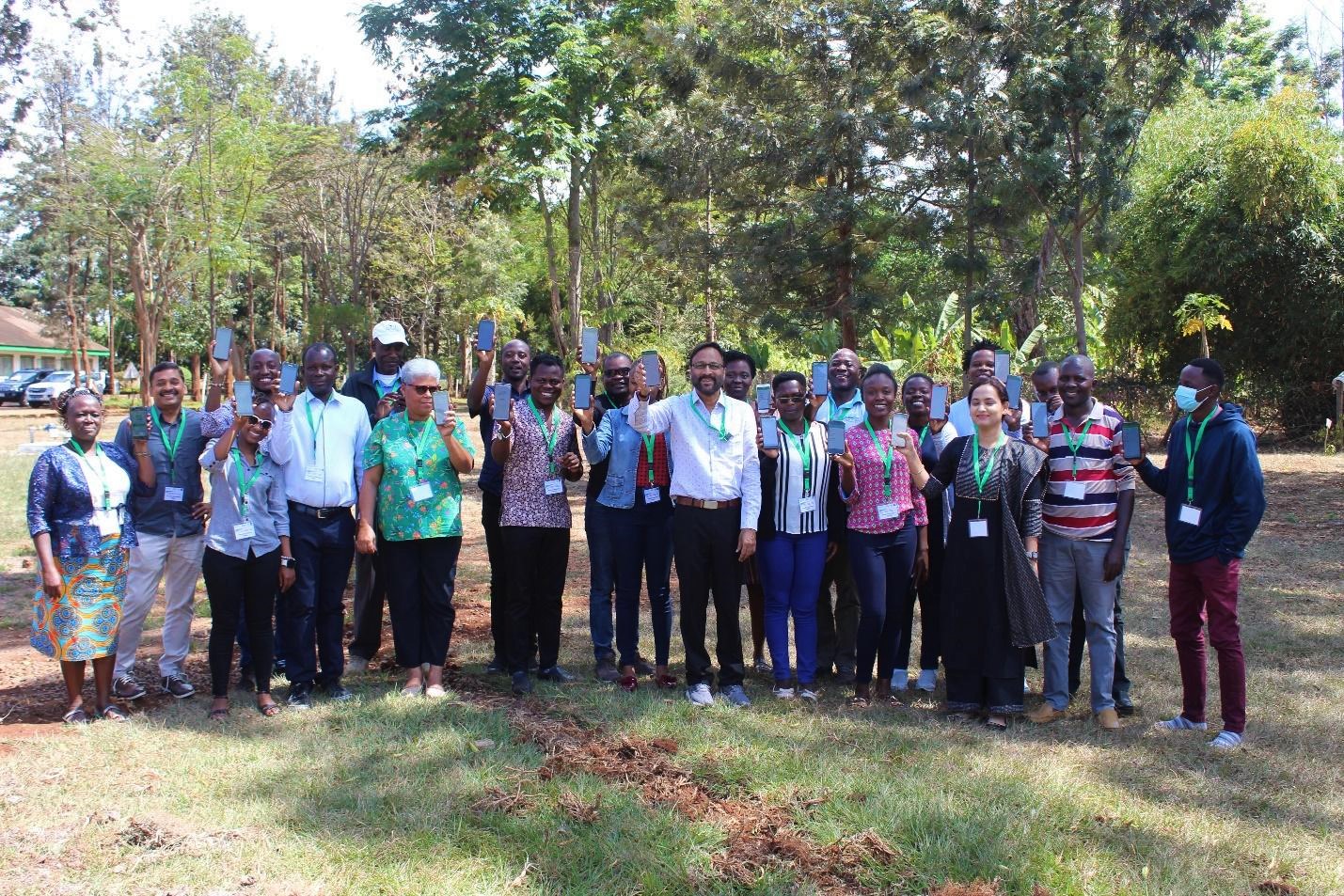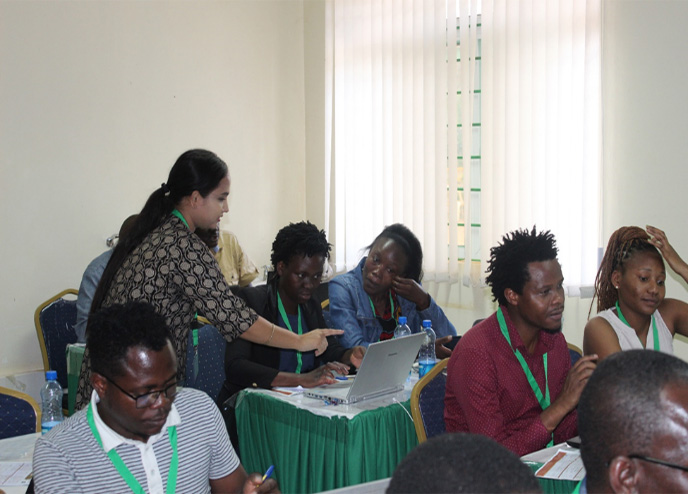
In East and Southern Africa, rice consumption and demand are increasing at a faster rate than any other crop. Farmers in this region continue to use old varieties that are vulnerable to climate change. The breeders use a conventional pedigree-based varietal development process, which is slow, laborious and generally takes more than a decade to release a new variety.
To bring a major transformation in the National Agricultural Research and Extension Systems (NARES) breeding in Eastern and Southern Africa, a week-long workshop on “Breeding Program Modernization: Speed and Smart Breeding Technologies” was organized by the International Rice Research Institute’s (IRRI) Breeding Modernization and CGIAR’s Excellence in Breeding (EiB) teams in Mwea, Kenya from 19-23 September 2022.

Participants hold their data devices. Source: IRRI
More than 30 rice breeders from 12 research stations of Kenya Agricultural and Livestock Research Organization (KALRO), Kenya and Mozambique's Institute of Agricultural Research (IIAM) have participated in this workshop. In addition to the field experience, participants were introduced to scientific and technical knowledge, practical speed and smart breeding methods and procedures. The Field Rapid Generation Advance (F-RGA), where 2-3 generations can be achieved in a year, digitization and bar-coding, data management and analysis, high throughput single-nucleotide polymorphism (HT SNP) genotyping and high -quality phenotyping, Community of Practices (CoPs) to increase genetic gains were covered during the training workshop.

Data analysis using plant breeding tools. Source: IRRI
Dr. Ajay Panchbhai, IRRI's Regional Breeding, Seed Systems and Product Management Lead for Africa, said during his remarks, "IRRI's mission is to abolish poverty, hunger, and malnutrition through rice-based agri-food systems. If we want to succeed in our mission in Sub-Saharan Africa, we must modernize the way our NARES partners develop, disseminate and manage new climate-resilient rice varieties. This is a transformative approach that IRRI and EiB are leading in the region."
Drs. Sanjay Katiyar, Reshmi Das, Suresh Kadaru, and Rosemary Murori from IRRI and EiB facilitated the training program.
Speed and smart breeding technologies have been adopted by South Asian NARES at a massive scale to develop market-demanded, climate-resilient and high-yielding varieties.
-----
Originally developed by IRRI. Special thanks to EiB project funders including the Bill & Melinda Gates Foundation (BMGF), the Foreign, Commonwealth & Development Office (FCDO), the United States Agency for International Development (USAID), the German Agency for International Cooperation (GIZ), the Federal Ministry for Economic Cooperation and Development (BMZ Germany), the Australian Centre for International Agricultural Research (ACIAR) and our partners.